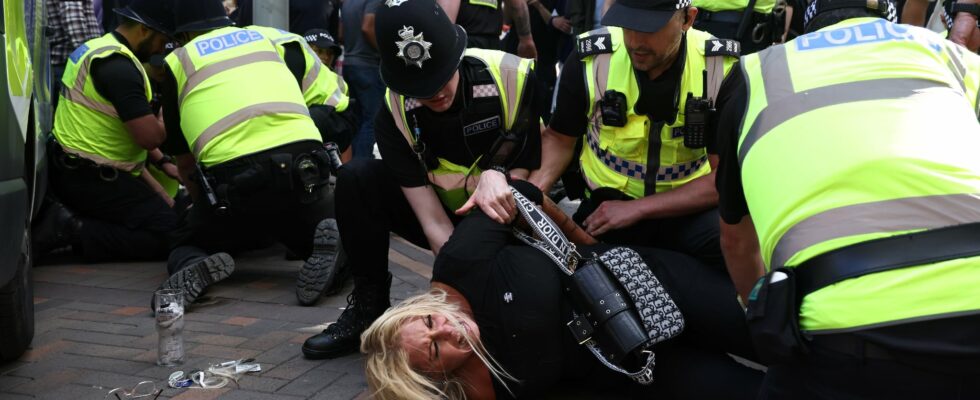“I am ashamed of myself and what I have done. I have let Southport and its children down, and I have let my family down.” It was with these words of contrition that Derek Drummond, a 58-year-old haulier and one of the first English rioters to be tried, welcomed his three-year prison sentence.
On the evening of July 29, just hours after the murder of three children in Southport in a knife attack that also left ten seriously injured, Derek Drummond joined a violent demonstration organized via social networks by the English far right. He punched a police officer who ordered him to back down. Derek Drummond went to the police after images of this attack were broadcast, relayed in all the media. If he had not pleaded guilty, his sentence would have been even harsher.
Keir Starmer on the speed and severity of justice
Keir Starmer’s strategy to end the far-right riots that have spread across the kingdom for ten days is simple: it is based on “name and shame” and on the speed and severity of justice. The same as in the summer of 2011, when he lent a hand to Conservative Prime Minister David Cameron during violent urban riots. At the time Attorney General and Director of Public Prosecutions, Keir Starmer had ensured that magistrates worked night and day to severely judge the perpetrators of violence and depredations. Faced with the youth of the rioters, David Cameron did not waver and announced his colours: “If you are old enough to commit these crimes, you are old enough to be punished for them.”
Another measure used by the British government, “name and shame” consists of making public the images and portraits of people wanted by the police as well as their name and city of residence as soon as they have been identified, and this, even before their judgment. It is then up to the media, who do not hesitate to circulate them. An often effective means of casting opprobrium on troublemakers. Derek Drummond thus lost his job as soon as his identification and participation were known and reported.
“The force of the law”
In the UK, the importance of policing is hardly debated, and there is little difference between Labour and Conservatives in how to deal with rioters. Another British peculiarity is that looting and destruction of private or public property is condemned as harshly as physical violence against people.
As anti-racist counter-protests take place across the country and demonstrated their strength on the evening of August 7, including in Wandsworth in north-east London, Bristol, Liverpool, Birmingham and Southampton, the 450 people arrested in recent days are beginning to understand Starmer’s words: “Those who took part in these riots are going to regret doing so. They are going to feel the full force of the law.”
Cole Stewart, 18, who has a history of crime, will go on trial on Friday for throwing bricks at police during riots in Darlington, near Durham in north-east England. Even if he pleads guilty, he is likely to face a prison sentence. As Keir Starmer puts it, “this will give the rioters time to reflect on their actions.”
